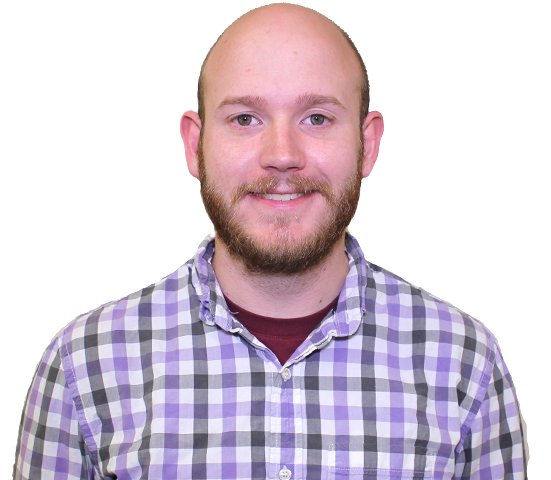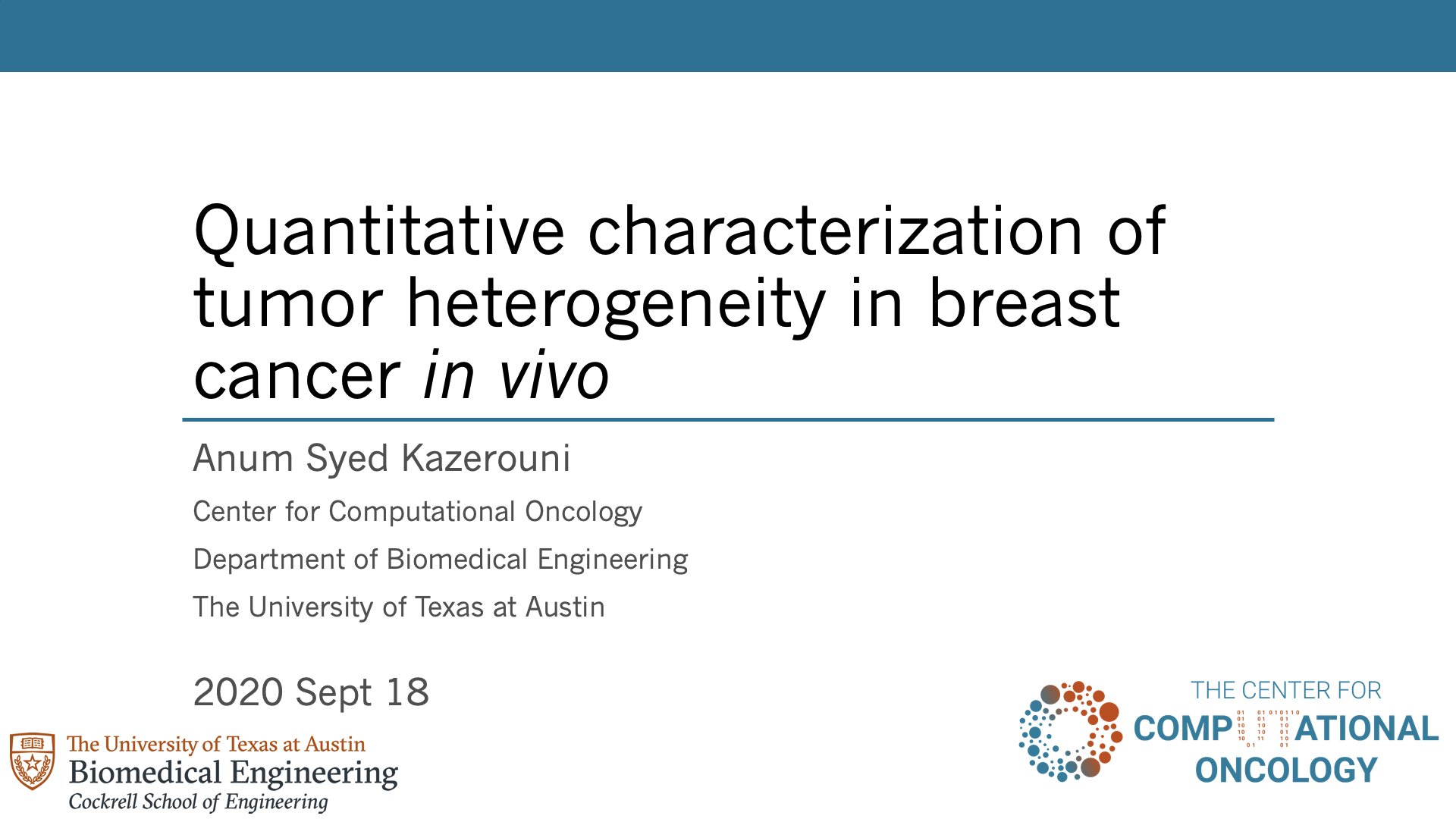
CCO’s Ryan Woodall won UT’s Biomedical Engineering (BME) Graduate Student Poster Competition! The BME retreat took place on August 27, 2018. The title and abstract of Ryan’s poster can be found below:
“A patient specific model of Re186-liposome transport for treatment of recurrent glioblastoma multiforme”
Abstract:
The purpose of this work is to develop, calibrate, and validate a spatiotemporal model of convection enhanced rhenium-186 ( 186Re) liposome delivery for pre-surgical estimation of dosimetry in treatment of recurrent glioblastoma multiforme (GBM). Diffusion MRI data informs liposome diffusivity and permeability, while the post-contrast T1 data informs perfusion. An advection diffusion model of post-delivery liposome transport is developed. The model is calibrated to match SPECT images through 120 hours post-infusion, and predicts the distribution of liposomes at 196 hours. The performance of a simplified model based on a small molecule agent, and constant material properties from literature, is used as a reference for model comparison. Qualitatively, the reference model over-estimates the delivery volume of liposomes to the target region. Utilizing a diffusion imaging-informed diffusivity model, calibrated to patient data reduced the error by 14%. Further addition of a T1-informed clearance term to the diffusion-informed model reduced error by 26%. To conclude, models of convection enhanced liposome delivery, which assume a small molecular agent, are less accurate at predicting liposome distribution than patient-calibrated models making no assumptions of liposome size. The addition of imaging data further increased the accuracy of the model. These preliminary results indicate the potential of a patient-specific modeling tool for pre-surgical dosimetry, similar to those used for planning external beam therapy.
Congratulations to Ryan for such an honor!



